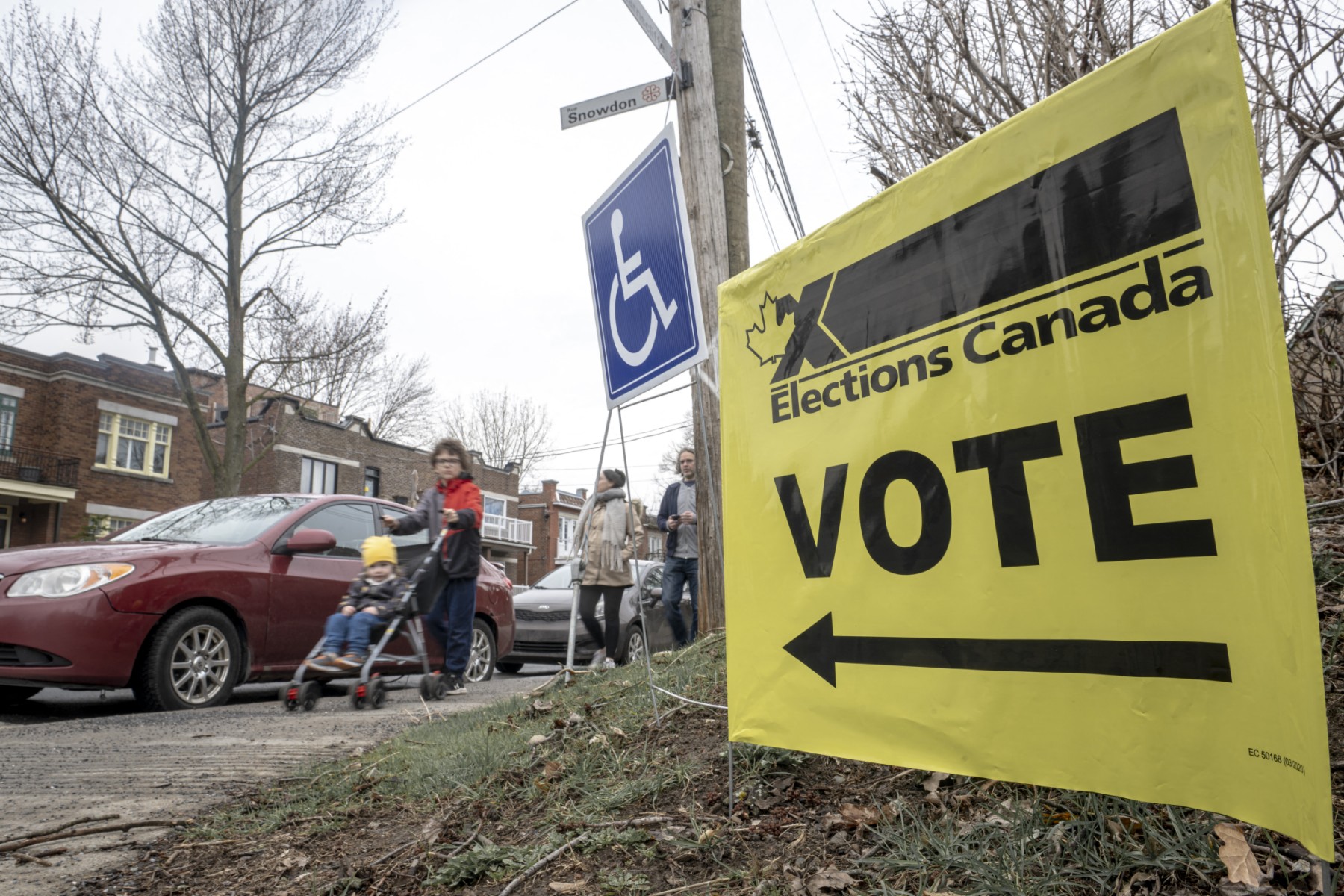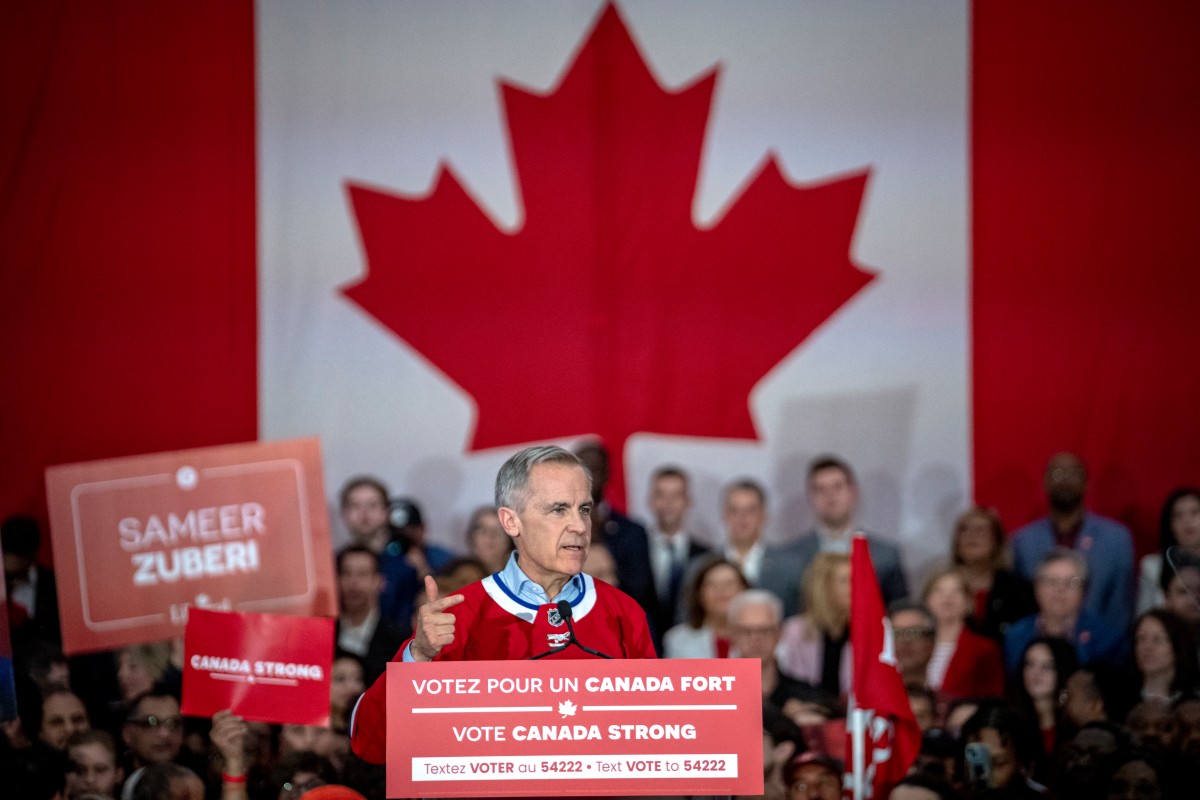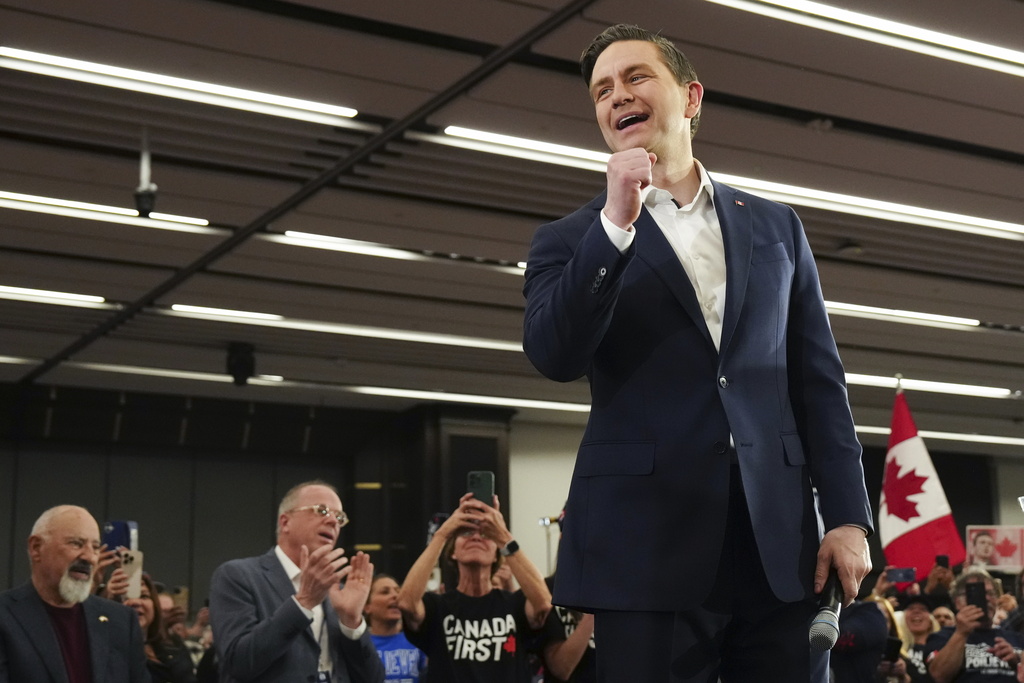
OTTAWA/TROIS-RIVIERES, Quebec - Elections Canada said Tuesday around 7.3 million electors voted on the four advance polling days in the federal general election.
This is a 25 percent increase from the 5.8 million electors who voted in advance in the 2021 general election, said the agency, noting that the number is an estimate and some polls may not have reported yet.
Advance polls were open last Friday and ended on Monday.
Previously over 130,000 Canadians had already voted by special ballot, more than double the number cast at the same point in the 2021 election. The agency issues special ballots to Canadians who don't want to wait until election day on April 28 or for advance polls.
A rolling three-day Nanos poll released on Tuesday put the Liberals at 42.6 percent public support nationally, with the Conservatives at 37.1 percent. The left-leaning New Democrats, who compete with the Liberals for the center-left vote, trailed at 10.4 percent.
Such a result on Election Day would give the Liberals a majority of the 343 seats in the House of Commons.
The Nanos poll of 1,308 people was carried out from April 19 to 21 and is considered accurate to within 2.7 percentage points, 19 times out of 20.
ALSO READ: Carney ahead in polls as Canada enters last week of election campaign
When it came to whom Canadians prefer as prime minister, Liberal Leader Mark Carney was leading at 47 percent while Conservative Leader Pierre Poilievre was at 35 percent.

Carney vows protection from Trump
On Tuesday, Carney took his election campaign to Quebec, saying only he could protect the predominantly French-speaking province from US President Donald Trump.
Any party wishing to win power must do well in Quebec, which has the second-largest number of seats in the House of Commons after Ontario and is home to an independence movement dedicated to protecting the role of French and local culture.
Trump has imposed tariffs on imports from Canada and mused about annexing the country.
"This threat is not only an economic threat, it is an existential threat. To be clear, President Trump is threatening the distinct identity of Quebecers," Carney said at a campaign event in the city of Trois-Rivieres.
"We'll be able to protect Quebec, protect our sovereignty and build Canada strong ... if you want a strong government that will defend Quebec and stand up to Donald Trump, you must vote for that," the prime minister said, reiterating calls for a strong mandate.
Trois-Rivieres, one of several Quebec parliamentary constituencies where three and sometimes four parties are contesting the vote, is a key Liberal target.
In the 2021 election, the separatist Bloc Quebecois won Trois-Rivieres with 29.5 percent of the vote, ahead of the Conservatives' 29.4 percent and the Liberals' 28.6 percent.
Liberal campaign workers on the ground say there are clear signs that Bloc supporters will switch their votes because they see Carney as the best person to stand up to Trump.
READ MORE: Carney pledges tax cuts, defense spending in Canada election platform

The Conservatives issued their economic plan on Tuesday, which focused on tax cuts and reduced spending. The plan calls for a budget deficit of C$31.4 billion ($22.7 billion) in 2025-26, less than the C$42.2 billion the government forecast in December.
The plan would "reverse the disastrous Liberal record, cut the cost of food and housing, let you keep more of what you earn and kill inflation so your dollar goes further", the party said in a statement.
Carney said a Liberal government could restore a fiscal surplus in four or five years if all goes to plan. A government mandate lasts up to four years.


